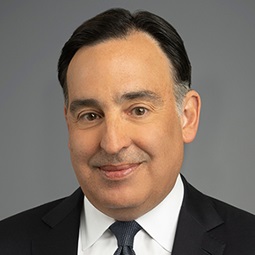The Securities and Exchange Commission charged Keurig with violations of the Securities Exchange Act of 1934 in connection with its filing of allegedly incomplete and inaccurate annual reports regarding the recyclability of its K-Cup single-use beverage pods. To settle the charges, Keurig agreed to pay a $1.5 million civil penalty and accept a cease and desist order, without admitting or denying the Commission’s findings. The authors of this article discuss the settlement and its implications.
The Securities and Exchange Commission (SEC or Commission) charged Keurig Dr Pepper Inc. with making inaccurate statements regarding the recyclability of its K-Cup single-use beverage pods. To settle the SEC’s charges, Keurig agreed to pay a $1.5 million civil penalty and accept a cease and desist order, without admitting or denying the SEC’s findings.
More specifically, the SEC charged Keurig with violations of Section 13(a) of the Securities Exchange Act of 1934 and Rule 13a-1promulgated thereunder in connection with its filing of allegedly incomplete and inaccurate annual reports. The violation centers around Keurig’s environmental, social, and governance (ESG) related disclosures in its 2019 and 2020 annual reports, in which Keurig represented that its “K-Cup” coffee pods could be “effectively recycled.” The Order alleges that at the times Keurig made those disclosures, it was aware that at least two large recycling companies, operating more than a third of national recycling facilities, would not accept the pods for recycling at their facilities.
The Order
In the Order1, the SEC alleges that based on market research Keurig conducted in 2016, Keurig determined that, for certain of its customers, environmental concerns were a significant factor in their decision to purchase Keurig brewing systems. Keurig then updated its K-Cup pod manufacturing in an effort to make the pods recyclable by the end of 2020, to achieve a goal that was included in a 2014 Sustainability Report of Keurig Green Mountain, Inc., now a subsidiary of Keurig. Keurig allegedly ran tests on the pods and solicited feedback from recycling companies to determine if the newly designed pods could be successfully sorted from other materials at recycling facilities. The tests showed that the pods
could be successfully sorted, but the Order alleges that two large recycling companies, accounting for more than a third of national recycling facilities, informed Keurig that they would not recycle the pods, a fact for which Keurig did not include a related risk factor.
In its 2019 fiscal year Annual Report on Form 10-K, Keurig disclosed, under the sub-heading “Sustainable Packaging” in the Corporate Responsibility section of the annual report, that it was on track to meet its goal of making “all K-Cup pods sold in the U.S. recyclable by the end of 2020” and also that it had “conducted extensive testing with municipal recycling facilities to validate that [the pods] can be effectively recycled” because they are made of “polypropylene #5 plastic, a material that is accepted curbside for recycling by many communities.”2 Keurig did not disclose that the two recycling companies would not accept the pods.
In its 2020 fiscal year Annual Report on Form 10-K, Keurig repeated the prior year’s disclosure about the recyclability of the pods and stated that, in December 2020, it had achieved its goal of making all K-Cup pods sold in the U.S. recyclable. The filing added that it “continue[s] to engage with municipalities and recycling facilities to advance the quantity and quality of recycled polypropylene and ha[s] committed $10 million toward the advancement of polypropylene recycling in the U.S. through the Polypropylene Recycling Coalition, an effort led by The Recycling Partnership and funded by leading brands, recyclers, converters and producers of polypropylene.” 3 Keurig did not disclose that the two recycling companies would not accept the pods. But in both annual reports, Keurig noted that its solutions for reuse and recycling “require[] collaboration of all parties along the value chain” and that it was using its partnerships, including with “industry groups, non-governmental organizations and investment firms, to move our commitments beyond independent ambitions to collective action.” 4 This latter disclosure was not discussed in the Order.
Keurig’s subsequent Annual Reports on Form 10-K, starting with the Form 10-K for the year ended December 31, 2021, did not contain any discussion of its recyclability goals or testing.
The Order asserts that the statements in Keurig’s 2019 and 2020 fiscal year Annual Reports on Form 10-K were incomplete and inaccurate because they did not also disclose the negative feedback received from recycling companies involved in the testing concerning the recyclability of pods, and therefore violated Exchange Act Section 13(a) and Rule 13a-1 thereunder. It does not directly allege fraud or even negligence—just incompleteness for Keurig’s failure to include disclosure describing the negative feedback received from the two recycling companies involved in the pod recyclability testing.
Implications
The Order comes on the back of a 2022 federal consumer class action settlement in which Keurig agreed to pay $10 million to consumers who purchased Keurig products that touted the recyclability of the K-Cup pods. 5
Despite the relatively modest $1.5 million civil penalty, the mechanism for the settlement signals the SEC’s willingness to allege violations of the securities laws based on the Exchange Act’s strict liability provisions that regulate issuers’ annual reports. The use of strict liability provisions by the Commission continues a recent trend, including charges relating to deficient disclosure of related person transactions and insider transactions. The imposition of virtual strict liability against issuers for misstatements or omissions concerning sustainability in a Form 10-K represents an aggressive step in ESG enforcement. Unlike Section 10(b) of the Exchange Act or Section 17(a) of the Securities Act, Section 13(a),6 which provides the basis for the violation and settlement here, does not require evidence of scienter or negligence but still affords the Commission much of the same relief. And although the Commission has brought cases like this one against financial institutions and other highly regulated entities for some time, it is highly unusual for a case like this to be brought against a consumer retail company.
This action is also the most recent example of the Division of Enforcement taking an extremely broad view of materiality in an area where the Commission has previously expressed a policy interest. More specifically, the Order finds that Keurig’s material omission is that it failed to disclose negative feedback from two recycling companies regarding the commercial feasibility of curbside recycling of its K-Cup pods. Perhaps unsurprisingly, Commissioner Hester Peirce took issue with the materiality standard imposed here, noting in dissent that “[t]he disclosure standard embodied in this settlement may have the positive effect of dissuading companies from talking about immaterial items in the SEC filings, but it will also expose companies to endless second guessing by the Commission unless they pad any statements . . . with a mountain of caveats.” Keurig, thus, raises the possibility that even those issuers who act diligently, but inadvertently file SEC annual or quarterly reports that contain a misstatement or omission concerning sustainability, could find themselves subject to an SEC enforcement action. The standard imposed by Keurig would represent a significant expansion of SEC liability and create significant new ESG exposure for public company issuers that have included ESG-related disclosure, including targets and goals, in annual or quarterly reports filed with the SEC. Although Commissioner Peirce was a dissenting voice in Gary Gensler’s SEC under the Biden administration, we expect that the SEC under the Trump administration is likely to be less aggressive in pursuing actions for Keurig-like misconduct, particularly under the stewardship of President Trump’s nominee for SEC Chair, Paul Atkins, who is expected to prioritize the advancement of companies’ business prerogatives at the expense of ESG considerations.
However, State Attorneys General, the Federal Trade Commission, and private plaintiffs are also focused on and bringing claims based on communications outside of SEC filings, such as ESG reports, corporate websites, and marketing materials.
Companies remain advised to:
- Conduct periodic “health checks” or reviews of all sustainability and ESG-related disclosures, marketing claims, and public statements, to identify risks of greenwashing accusations.
- Ensure risk factors, forward-looking statements, and other disclaimers are current and protective, and other litigation and enforcement risk mitigation strategies implemented.
- Review disclosure controls and procedures to ensure that ESG-related disclosures are appropriately covered, and review effectiveness of related internal controls.
- When updating or changing sustainability or ESG targets consider whether an explanation of such change is advisable.
Notes
The authors, attorneys at Weil, Gotshal & Manges LLP, may be reached
at robert.stern@weil.com, lyuba.goltser@weil.com, rebecca.grapsas@weil.
com, and ben.marcu@weil.com, respectively.
- 1. https://www.sec.gov/files/litigation/admin/2024/34-100983.pdf.≈
- 2. Keurig 2019 10-K at 7, filed Feb. 27, 2020.≈
- 3. Keurig 2020 10-K at 9, filed Feb. 25, 2021.≈
- 4. Id.≈
- 5. See Smith v. Keurig Green Mountain, Inc., 4:18-CV-06690-HSG (N.D.
Cal.).≈ - 6. Section 13(a) is focused on the conduct of the issuer. While Section
13(a) violations are strict liability for the issuer, the SEC can only pursue
secondary liability theories against individuals or other experts that contributed
to the relevant annual reports for either aiding and abetting or causing
the issuer’s violation. Aiding and abetting a Section 13(a) violation requires
the SEC to establish actual knowledge or recklessness, while causing such a
violation requires the SEC to establish negligence.≈
















